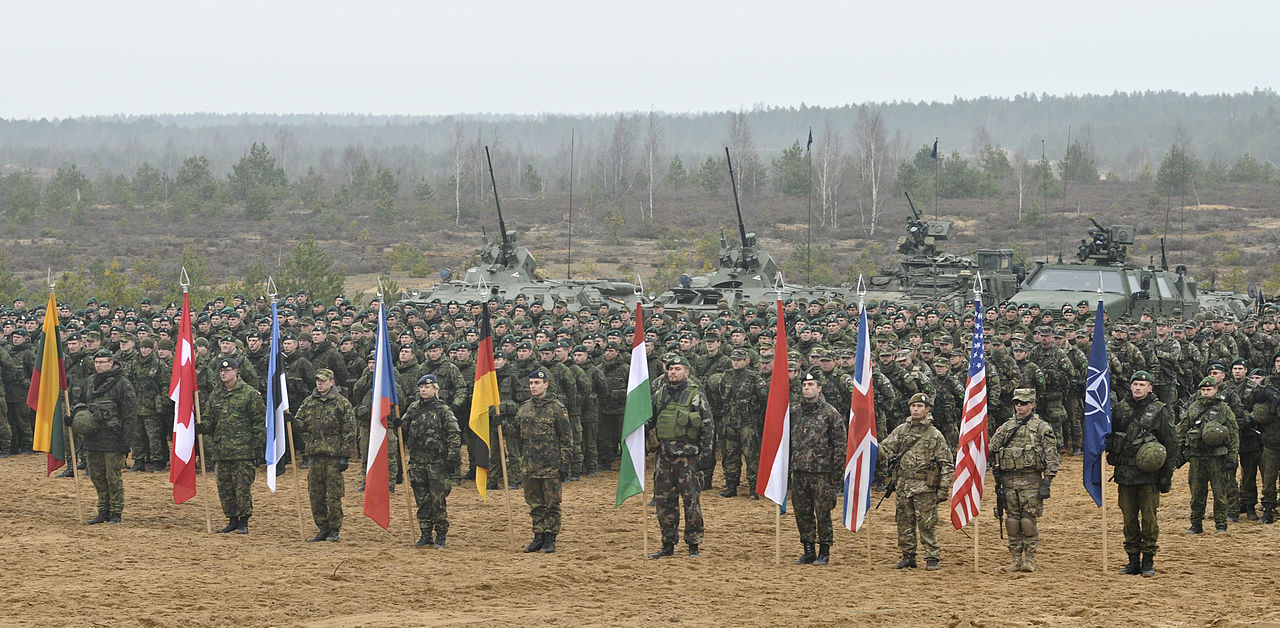Lukashenka resorts to ‘security trade’ tactics in negotiations with the Kremlin
 The situation has not changed
The situation has not changed

Minsk is attempting to use the security factor sensitive to the Kremlin to resolve contradictions in bilateral relations in its favour.
On October 22nd, 2019, President Lukashenka instructed Belarusian Security Council Secretary Stanislau Zas and Defense Minister Andrei Raukou to develop a response plan to the US Army tank battalion deployment in Lithuania. Formally, the authorities have the following concerns:
– the very fact of the American troops’ deployment in a neighbouring state
– the fact that the American troops are near the Belarusian border
– the American unit is armed with tanks, which are considered offensive weapons.
Earlier, on October 11th, 2019, during the CIS summit in Ashgabat, Lukashenka expressed concerns about the NATO military exercises Defender 2020 in Europe to be held near the Belarusian border. He invited President Putin to take joint reciprocal steps. To date, there was no public response from Russia to this proposal.
The American tank battalion temporarily stationed in Lithuania, due to its small size, is not creating a military threat to Belarus. The upcoming NATO exercises in Europe, Defender 2020, will be the third-largest military training on the continent. Previously, however, Minsk was a lot more modest in its reactions in relation to larger exercises.
Lukashenka’s warlike rhetoric is aimed at one listener, Putin. The Belarusian leader uses the military activity in the neighbouring states to show off his reliability as the Kremlin’s military-political ally, vigilantly guarding Russia against the West. Due to Moscow’s sensitivity to security issues, Minsk aspires to make it more accommodating on economic and political issues in bilateral relations.
Meanwhile, Belarus is not willing to aggravate relations with the West due to the NATO activity on the eastern flank. At the annual joint meeting of the Defense Ministries of Belarus and Russia on October 25th, 2019, Belarus expressed concerns about the degradation of security mechanisms in Europe, not pointing a finger.
That said, Russia directly accused the West of exacerbating the situation in the region. Minsk will only support Russia in her opposition to NATO’s military preparations where that would not deteriorate Belarus’ foreign policy position (for example, a temporary increase in combat duty, Russo-Belarusian military exercises in parallel with NATO’s or updating combat planning documents). The expansion of the Russian military presence in Belarus is still not on the table.
Subscribe to our newsletter




Situation in Belarus
Constitutional referendum: main consequences


 Video
Video
How to count the political prisoners: are the new criteria needed?


 Video
Video
Paternalism In Decline, Belarusian Euroscepticism, And The Influence Of Russia


 Video
Video












